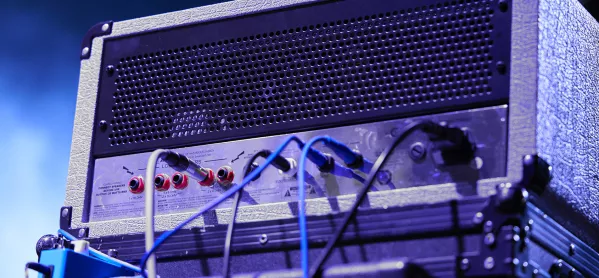- Home
- Analysis
- Specialist Sector
- How we make sure our neurodivergent pupils are heard
How we make sure our neurodivergent pupils are heard

When Angela Morgan’s additional support for learning (ASL) review was published in 2020, it stated that ASL was not equally valued in the Scottish education system and was overly dependent on committed individuals.
Yet the review of Scottish teaching’s standards for full registration highlights the need for all teachers to understand the importance of inclusion and meeting all learners’ needs. Meanwhile, the government’s ASL action plan underlines the importance of listening to all children and involving them in decision making.
We also know that the number of pupils with recorded additional support needs (ASN) has increased, with the latest Summary Statistics for Schools in Scotland identifying rapid growth since 2010 - well over one-third of all learners in Scottish state schools now have ASN.
Our school’s response to all of the above was to ask this: “Are we listening to the voices of our neurodivergent learners?”
Listening to ASN pupils
In initial conversations, our neurodivergent learners told us that their school should be a safe place where they can be themselves. They needed to know that they can make mistakes and ask questions, and that their views are not only listened to but also acted upon.
They wanted to ensure that the whole school community had the same shared values, through raising awareness of neurodivergent conditions and the support available in school and at home. We established a “Neurodiversity Squad” of learners, who came up with an action plan for the school.
Our next challenge was how to involve others in this journey, including staff, pupils and parents. We listened to feedback, supporting learners through a new Microsoft Teams page for sharing videos, ideas, successes and useful strategies. We focused staff professional learning around a range of inclusive strategies.
- Related: “We know how to make inclusion work - so let’s do it”
- Context: Five things teachers should know about neurodiversity
- Parents: “Huge cultural change” needed on parent involvement
The National Framework for Inclusion makes it clear that inclusive education has to be a priority for the Scottish government, with learner engagement sitting front and centre.
The national Inclusion Ambassadors initiative was created to ensure that the voices of learners with ASN were heard: its vision is that “school should help you be the best that you can be.” This is mirrored by our school’s mantra to “be the best you can be”.
The Inclusion Ambassadors scheme demands positive attitudes towards neurodiversity, and the young people involved have spoken confidently about their neurodivergent conditions. There has been a clear emphasis on relationships, on having someone to go to for help, on belonging to a community. Even the smallest of changes has had a significant impact. Our school’s learners were keen to apply all this.
Changing hearts and minds
Angela Morgan’s report, All Our Children and All Their Potential, shares the views of learners with ASN. They wanted to be included in their school communities, and felt happier at school if peers were kind, understanding and able to see them for their strengths and the positive aspects of being neurodivergent, rather than what they could not do.
It became apparent there was a need to raise the self-esteem of pupils in our school who were perhaps embarrassed about their identification, or felt this was something negative in their life. It was important for them to have a better understanding of their differences but, more importantly, of their strengths. By spreading the word across the whole school, our community gained a better understanding of difficulties experienced by peers, and we sought solutions to support learning.
The Neurodiversity Squad linked with the school’s already established health and wellbeing group to view achievement and attainment in a wider sense.
One of the most powerful developments was a parental-engagement event led by learners, where they demonstrated the myriad resources, tools and strategies available to them.
One parent said they had observed a big shift in the attitude of their child: they had gone from asking how they would ever manage to get a job in the future to submitting a video to Dyslexia Scotland to share their work with the nation.
A safe space
The Neurodiversity Squad has provided a safe place to share difficulties and find the tools that work for individuals. It helps pupils to feel part of a community and recognise they are not alone with differences, and they also learn about and appreciate other challenges that peers face.
Here is one powerful comment from a parent: “What a fantastic opportunity for them all to come together, support each other and help develop empathy for others. Without Mrs Blair and the Neurodiversity Squad, our life would be very different.”
Success looks different for us all. Pupils need opportunities to explore what their strengths are, with these strengths then celebrated and valued, allowing their self-esteem to flourish.
Too often children who are neurodiverse or have a physical impairment are measured by what they can’t do - we want to celebrate what they can do.
Sharon Blair is support for learning teacher at Williamston Primary School in Livingston, West Lothian
Williamston Primary was a 2023 Success Looks Different winner. These awards were launched in 2022 by the Inclusion Ambassadors, a group of secondary school-age young people with additional support needs, to celebrate educational settings in Scotland that promote inclusion and celebrate the success of all their pupils
topics in this article



